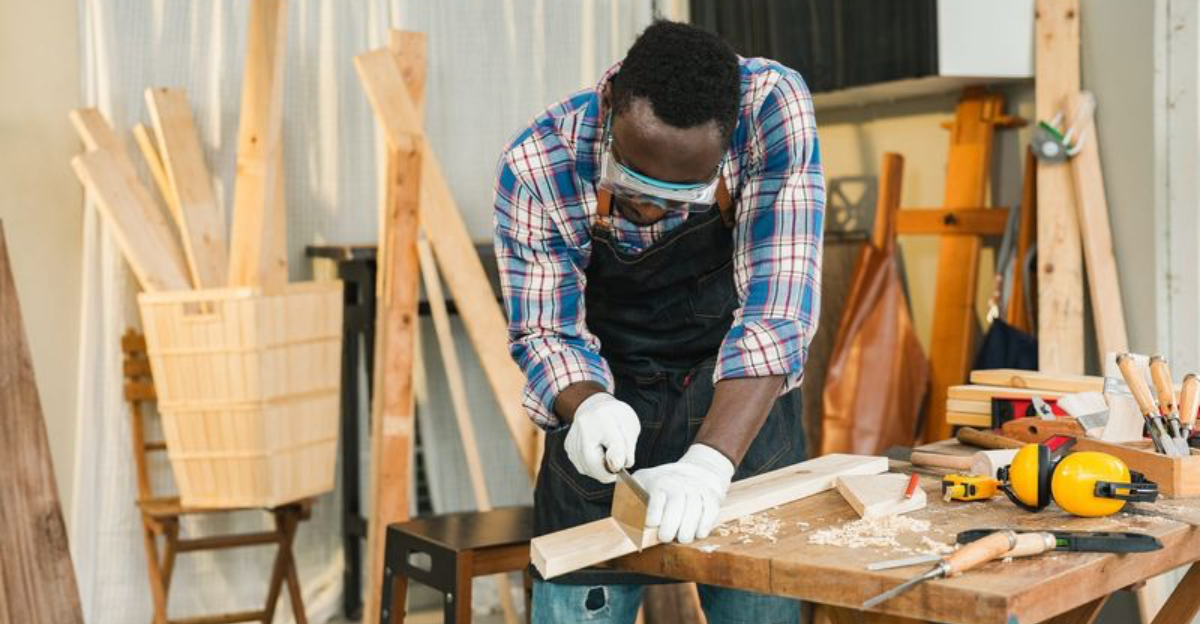18 Old-School Life Skills That Mean Your Parents Totally Nailed It
Your parents may not have had Pinterest boards or digital calendars, but they gave you something better: practical life skills, real-world independence, and the ability to take care of yourself with confidence.
If you know how to balance a checkbook, cook something without Googling it, or sew a button back on your shirt—chances are, your parents did something right.
Before apps and YouTube tutorials, life skills were passed down the old-school way: through hands-on teaching, trial and error, and a whole lot of “figure it out.” These 18 old-school life skills prove your parents totally nailed it—even if you rolled your eyes at the time.
1. Doing laundry the right way (and not shrinking your clothes)

Color-sorting, water temps, and that one towel that definitely shouldn’t go in the dryer? You learned it the hard—but right—way. Growing up, laundry day was a ritual in itself. As a kid, you might have grumbled about those extra steps, but now you understand the art behind it.
Sorting whites from darks, knowing the difference between hot and cold washes, and understanding fabric care labels were all lessons wrapped in love and practicality.
And let’s face it, avoiding shrunken sweaters or color-bleeding disasters was a skill worth acquiring. Your parents might have seemed strict with their laundry rules, but in a world where everything seems disposable, you see the value in caring for your clothes. It’s all about the details and those tiny lessons turned into lifelong habits.
2. Cooking real meals without a recipe
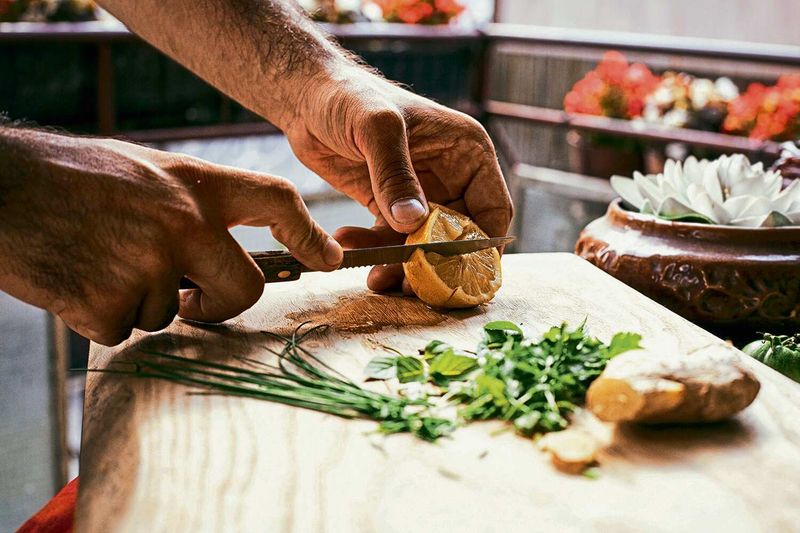
From “a dash of this” to “you’ll know when it smells right,” you mastered the art of meals made with instinct. Remember those weekends you were told to help in the kitchen? It wasn’t just about making dinner; it was a masterclass in culinary intuition.
Instead of relying on step-by-step recipes, you learned the rhythm of cooking. You know that the sound of sizzling garlic means it’s time to add the onions and that the sight of bubbling sauce indicates a rich flavor.
This approach has given you the confidence to whip up a meal with whatever is in the fridge, and it’s a skill that makes even the simplest dishes taste extraordinary. The best part? Cooking has become a joyful, creative process rather than a chore, and every delicious bite reminds you of those lessons from home.
3. Cleaning like a pro—with vinegar, baking soda, and elbow grease

If your house still smells like lemon Pledge on Saturdays, you were raised right. Cleaning wasn’t about harsh chemicals; it was about clever solutions. The magic combo of vinegar, baking soda, and a little elbow grease was your go-to.
Your parents showed you that shiny doesn’t always mean store-bought. It’s the gentle scrub of baking soda or the amazing degreasing power of vinegar that got the job done.
And let’s not forget the satisfaction of a spotless home achieved with minimal expense and environmental impact. Those Saturday morning cleaning sessions, with music playing in the background, became a weekly tradition. Now, when you clean, you’ll often find yourself smiling at the memory of learning to make surfaces gleam with natural ingredients. It’s a reminder that simplicity often holds the key to brilliance.
4. Answering the phone politely—even if you had no idea who it was

“Hello, this is [your name] speaking” is burned into your brain—and now you cringe when someone answers with just “yeah?” Answering the phone politely was once a rite of passage.
Those daily calls were your acting classes, teaching you to be courteous and articulate. You quickly learned to manage the awkwardness of unknown callers and to speak clearly and confidently.
In an era of constant texting, the art of phone etiquette might seem quaint, but it’s one of those skills that sets you apart. Every time you answer a call with a polite introduction, you’re reminded of those lessons in respect and communication. And who knows? That small touch of politeness might just make someone’s day. After all, it’s the little things that often leave the biggest impressions.
5. Writing thank-you notes without being reminded
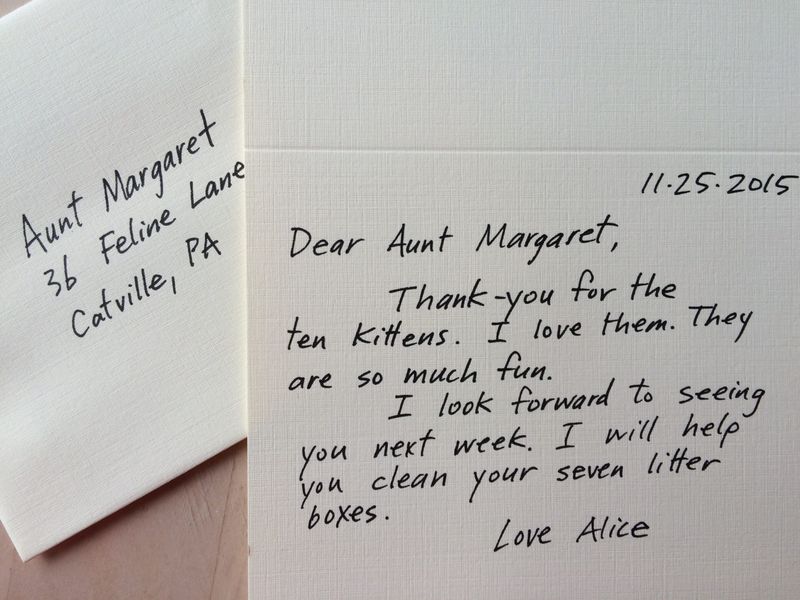
Paper, pen, envelope, stamp. Gratitude in full sentences. Instant adulthood. The art of writing thank-you notes is one of those skills that truly marks the transition to adulthood.
Not just a formality, these notes are a thoughtful gesture that shows appreciation in a way that digital messages can’t replicate. It’s about taking the time to express gratitude in a tangible form.
Thank-you notes taught you the value of acknowledging kindness and generosity, charmingly wrapped in sincerity. And while the process might have felt tedious as a child, as an adult, you see the beauty in this simple act. Every note written is a reminder of the connections you cherish and the lessons in etiquette and thoughtfulness that have shaped you.
6. Sewing a button or fixing a hem (without crying)

Basic stitching = instant confidence. And your mom didn’t even need a YouTube tutorial. Sewing might seem like a minor skill, but it’s one that comes with a sense of accomplishment.
The first time you successfully sewed a button or fixed a hem, you realized how empowering it is to repair rather than replace. Those lessons in threading a needle and tying a knot taught you patience and precision.
In a world where fast fashion often leads to disposal, knowing how to mend clothes is a small rebellion against waste. Each stitch is a nod to sustainability and resourcefulness, values instilled by your parents. And every time you pick up that needle and thread, you’re reminded of the love and care woven into those childhood lessons.
7. Reading instructions before asking for help
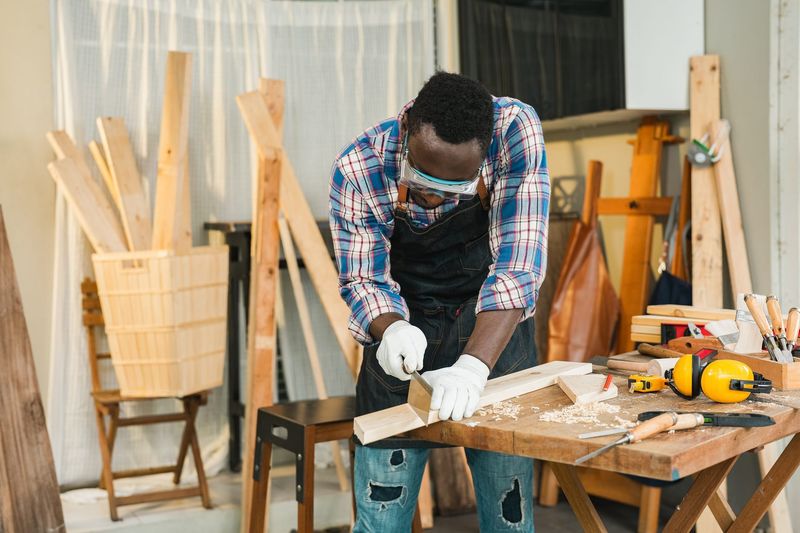
Whether it was IKEA furniture or a science kit, the rule was clear: “Try first.” Reading instructions was the unsung hero of problem-solving in your household.
Before you could ask for help, you had to make an honest attempt to understand and follow the instructions. This taught you independence, patience, and the art of piecing together a puzzle.
While it might have felt frustrating at first, the satisfaction of successfully assembling something on your own was worth it. It was a lesson in perseverance and self-reliance. And now, whenever you face a new challenge, you’re reminded to take a deep breath and read the instructions because you know you have the skills to figure it out.
8. Using real tools—not just calling someone
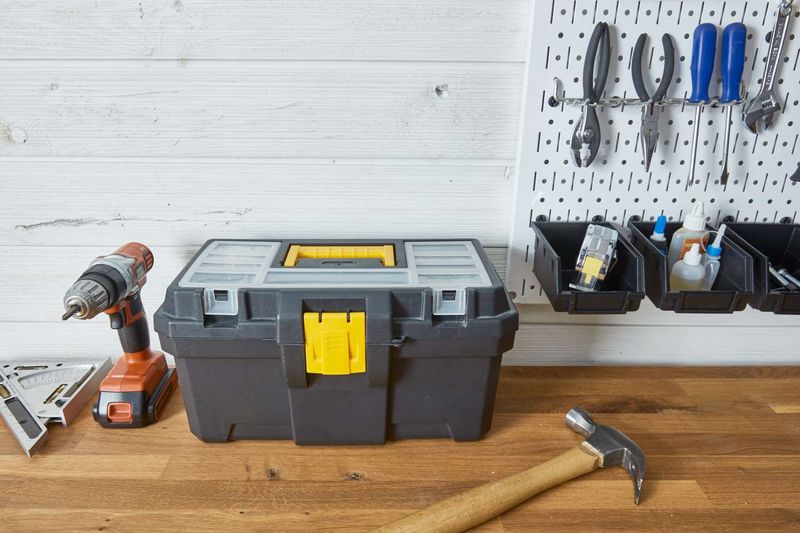
From hanging pictures to unclogging drains, you’re surprisingly handy, thanks to early lessons in the “fix it yourself” life. Your parents showed you the ropes of basic tool use, teaching you not to shy away from tackling repairs.
Whether it was tightening a loose screw or replacing a washer, these skills gave you the confidence to handle minor household projects. You learned the importance of maintaining your home and the satisfaction of completing a task with your own hands.
While calling a professional is sometimes necessary, the ability to address small issues yourself is a valuable skill. It’s about empowerment and taking control of your surroundings, something your parents instilled in you from a young age.
9. Making small talk with actual humans

Thanks to being dragged to adult parties and family gatherings, you can hold a conversation anywhere—with anyone. Those awkward social events were actually invaluable training grounds for mastering the art of small talk.
You learned to ask questions, listen actively, and find common ground with strangers. Over time, these experiences built your confidence in social situations, turning you into a conversational chameleon.
In an age where digital communication often overshadows face-to-face interactions, your ability to engage in small talk is a rare gem. It’s about more than just passing the time; it’s about making genuine connections and leaving a positive impression. And every time you strike up a conversation with ease, you silently thank your parents for those lessons in social finesse.
10. Waking up without 5 alarms and a panic attack

Because your parents didn’t believe in snooze buttons—and now, neither do you. Mornings in your household were all about discipline and routine.
You learned to rise with the sun, not because of endless alarms, but because of a well-ingrained sense of responsibility. Your parents taught you the importance of starting the day on the right foot, without panic or chaos.
Now, as you wake up to a new day, that habit of waking up promptly still serves you well. It’s a small but significant legacy that helps you face the day with calm and readiness. And while others may struggle with the snooze button, you enjoy the tranquility of a peaceful morning, all thanks to your upbringing.
11. Memorizing phone numbers “just in case”

Before smartphones, there was your brain. And yours is still storing at least five numbers from 1998. In the days when contacts weren’t at your fingertips, memorizing phone numbers was essential.
Your parents encouraged you to remember these sequences as a backup, a practice that honed your memory skills and provided a sense of security. Even today, you find comfort in knowing a few key numbers by heart.
While technology has changed how we store information, the ability to recall important numbers remains a valuable skill. It’s a link to a simpler time and yet another testament to your parents’ emphasis on practical knowledge and self-reliance.
12. Balancing a budget—and not spending money you don’t have

You know the value of saving, splitting checks, and why you don’t need the $7 latte every day. Financial literacy wasn’t optional in your household.
Your parents taught you to track expenses, plan for the future, and resist the temptation of instant gratification. It was about living within your means and understanding the difference between wants and needs.
These lessons in budgeting and saving have shaped your financial habits, providing a foundation for financial stability. While others might struggle with managing money, you approach it with confidence and clarity, all thanks to the wisdom imparted by your parents.
13. Checking the oil and tire pressure on your car

Because ignoring that dashboard light was not an option in your house. Car maintenance was a subject your parents took seriously, and they made sure you understood the basics.
From checking the oil level to knowing the correct tire pressure, these skills gave you the confidence to handle minor car issues. It was about self-sufficiency and safety on the road.
Even now, you find yourself revisiting those lessons whenever you pop the hood. It’s a skill set that empowers you to take charge of your vehicle’s health, ensuring that you’re never caught off guard by preventable issues.
14. Showing up on time, every time

Late = disrespectful. Period. Punctuality was a cornerstone of your upbringing.
Your parents instilled in you the value of respecting other people’s time by being prompt and reliable. Whether it was attending school, meeting friends, or arriving at appointments, being on time was non-negotiable.
This habit of punctuality has become second nature, reflecting your commitment to honoring your commitments and responsibilities. It’s a trait that sets you apart and creates a positive impression in both personal and professional settings.
15. Bringing something when you’re invited to someone’s home

A bottle of wine, a dessert, or even just good manners—never arrive empty-handed. This simple gesture of thoughtfulness was a rule in your household.
Your parents taught you to show appreciation and gratitude when invited into someone’s home, a practice that strengthens relationships and fosters goodwill.
It’s about acknowledging the effort your host put into welcoming you and reciprocating that kindness. This habit of bringing a token of appreciation has become second nature, ensuring that you’re always a gracious guest.
16. Setting a table and eating with actual manners

Fork on the left, napkin in your lap, no elbows—etiquette wasn’t optional. Dining manners were a non-negotiable aspect of mealtime.
Your parents emphasized the importance of proper table settings and respectful dining behavior, teaching you the finer points of etiquette.
These lessons extended beyond just knowing which fork to use; they were about showing respect and consideration for others. The dining table became a stage for practicing social graces, leaving you with skills that enhance your dining experiences to this day.
17. Leaving a voicemail that makes sense

“Hi, it’s me. Just calling to say thanks for the invite. Talk soon!” Simple. Polite. Effective. Leaving a voicemail that makes sense was a must.
Your parents taught you how to convey information clearly and politely, even when the recipient wasn’t there to hear it in real-time. It was about clarity and courtesy, ensuring that your message was received as intended.
In a world where instant messaging often replaces voice communication, the ability to leave a thoughtful voicemail is a valuable skill. It’s a nod to the art of communication and the importance of making meaningful connections.
18. Reusing things before replacing them

Old-school parenting = “We’re not throwing that out. We’re fixing it or finding a new use for it.” Reusing things was a way of life.
Your parents showed you the value of resourcefulness and creativity, teaching you to see potential in everyday objects. Whether it was turning an old jar into a vase or fixing a broken chair, the mantra was to make do and mend.
This mindset has stayed with you, fostering a sense of environmental responsibility and appreciation for sustainability. It’s about cherishing what you have and making the most of it, a lesson in gratitude and innovation.

